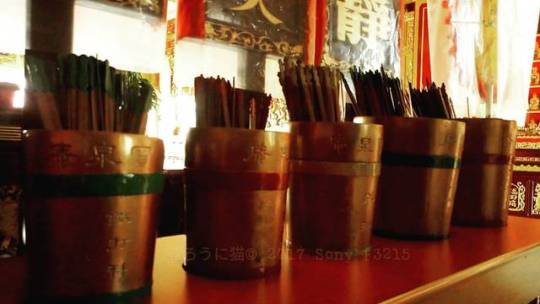#kauchim
Photo

Cô gái xin xăm mùng một. “Woman seeking Kau Chim first day of Tet” #tet #kauchim #lunarnewyear #aodai #vietnamesegirl #sketch #artistsoninstagram https://www.instagram.com/p/B79qpkTnydf/?igshid=12o5xd5p29z09
0 notes
Text
She walked me to the door, where we would part, perhaps for the last time in this way. My suitcase was already at the door, and like in a John Denver song, the uber was just a few minutes away. Outside it is hot, and already I'm dreading it, as usual. She remains inside, in socks because it's cold with the AC on, while I step outside before turning to face her.
"Take care," she says. "We are all waiting for you to come back."
I'm used to these goodbyes. Ever since I left this house to go to uni, we've always said goodbye this way. I've watched her hair grow greyer and lines thicken across her face through the frame of this door. I push a charm into her hands at the last minute, when I hear the uber pulling onto our street. It's a small, purple fabric bag -- something I got for 500 yen at some temple in Japan over the summer.
"Something for good luck, and health," I say. She tries to give it back, telling me, "I can't take your blessings. You'll need it more than I do." But my hands are already, predictably, full with my suitcases, and there are nowhere for her to push the amulet into. I shake my head, reiterate that it's fine, and say goodbye. "The uber is waiting." From the window of the car, I watched as she put it into the pocket of her pants, offer one last wave, before shutting the door.
I never used to believe in luck, or anything superstitious. I frowned at people who gathered in the common room in the evenings to experiment with Tarot cards, and rolled my eyes at all amulets, chamrs, and any sort of prayer. John used to think this was terribly rude of me. You should open your mind to more things, he'd say -- or something to that effect anyway. John wasn't that much of a believer in the occult, or in the magical either, but he saw Tarot, for instance, as just another form of intrigue. Something to be curious about, but not to put any emphasis on, or any real belief in. But it always annoyed me all the same.
"It's interesting, isn't it? How people believe and what they believe in." He would throw these comments out casually, over lunch or while we were just walking to the shops, but delibaretly provocative. He always stopped by the Jehovah Witnesses' stands t pick up a pamphelt, and always gave time of day to the keen, young Mormon elders hovering around the market square.
"How is it different for evangelizers who try to get people to go to church? Any form of false belief is the same thing."
We used to argue about it this way. I think about it now as the taxi speeds towards the airport, past neighbourhoods and districts that never cross my mind. Soon I'll fly somewhere different -- somewhere cold, again. In the years since leaving uni I've become somewhat of a hypocrite, even if just to myself. I've been to temples and stood beside my grandmother and bowed to guanyinma, and have enlisted the help of the old ladies to "kauchim" and surmise my fortunes by scattering jiaobei -- moon blocks, as I learnt -- across the temple floor. I've spread my palms open on rickety tables in alleyways behind the temples, and have asked for jade qmulets in the market that coincide with my zodiac for the upcoming year. The year I took my final exams, it was a cicada, for wisdom, and on another it was a string of something else. I kept them firmly, deliberately, around my neck or with the rest of my stationery, as if belief was just another tool to get me through.
I called him once, just once, in the years after uni, from a payphone in the airport. At that time we hadn't seen each other in a few years, but I wanted to try the number when I was back in the country. I wondered what had become of him since the day we said goodbye on the platform of the station after graduation. "What will you do?" I remember asking. I already had a PhD offer lined up, and all my storage boxes were labelled with a city and a country I knew I was moving to.
"I'll travel this year, wait a bit, and then figure things out." And he was off.
The phone rings a few times before it clicks into connection. Someone else picks up -- I can tell from the impatience that I've got the wrong number. I stand in front of the phone for a long time long after the line goes dead, emptying my coins into the machine.
1 note
·
View note
Photo

Kau Cim, Kau Chim or Lottery poetry is a fortune telling practice that originated in China in which the querent (person asking the question) requests answers from a sacred oracle lot. The practice is often performed in a Taoist or Buddhist temple in front of an altar. Kau Cim is often referred to as Chien Tung or Chinese Fortune Sticks by westerners. In the USA, a version has been sold since 1915 under the name Chi Chi Sticks. Kau Cim is also sometimes known as "The Oracle of Kuan Yin" in Buddhist traditions. #kaucim #kauchim #lotterypoetry #求签 #求簽 #chientung #chinesefortunesticks #chichisticks #YuMoGuiGwaiFaiDiZao #精靈惡魔鬼魂怪物快離開 #精灵恶魔鬼魂怪物快离开 #buddhisttemple #buddhist #temples #templerun #templerun1 #templerunmanila #templerunbinondo #yuchengco #nueva #pochuanamtemple #pochuanam #wanderingcat #wheninbinondo #binondogirl #mobilephotography (at Binondo, Manila)
#mobilephotography#buddhist#binondogirl#nueva#精灵恶魔鬼魂怪物快离开#wheninbinondo#temples#精靈惡魔鬼魂怪物快離開#kaucim#求签#求簽#templerunbinondo#pochuanamtemple#lotterypoetry#templerun#chientung#wanderingcat#pochuanam#chichisticks#yumoguigwaifaidizao#yuchengco#buddhisttemple#chinesefortunesticks#templerunmanila#templerun1#kauchim
0 notes